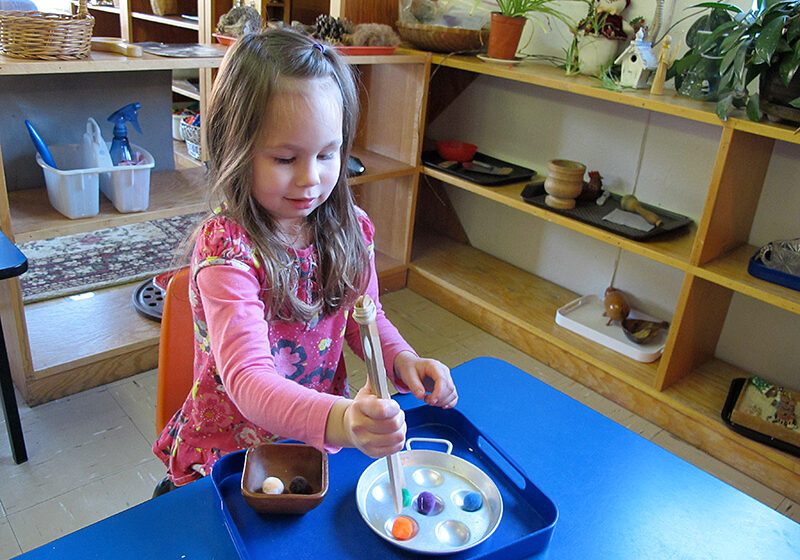“Everybody is a genius. But if you judge a fish by its ability to climb a tree, it will live its whole life believing that it is stupid.” ~ Albert Einstein
This is one of my all-time favorite quotes. I know it’s true because back when ADHD was defined as, “Doesn’t live up to his potential” and the accepted treatment, was detention, I was a little fish who thought he was just stupid.
It turns out that I didn’t need to “focus.” I didn’t need “more discipline.”
I just needed someone to understand that maybe, just maybe, I didn’t need to know how to climb a tree, because climbing trees wasn’t what I was meant to do.
Einstein – a great scientific mind – hated school
Albert Einstein, who would become one of the greatest scientific minds in history and lay the groundwork for modern physics, was an abysmal student. He hated school and was expelled at 16 because teachers felt that his bad attitude was affecting his classmates. Soon after, he tried to enter the Federal Institute of Technology in Zurich, Switzerland, but he failed the entrance examination in every subject but math.
Sounds like a fish in a tree to me.
I wasn’t any more fond of school than ol’ Albert. Each morning I’d drag myself to the bus stop like a bootless P.O.W. nearing the end of the Bataan death march, finally shuffling to the back seats and slumping over my book bag in moody resentment.
High school, detention, and “math anxiety”
Then there was math…ahh math…my lifelong foe…the fly in my soup, the Darth Vader to my Rebel Alliance. Most of my teachers, from pre-school right through college were great, dedicated, caring people. Ms. Fungus, my seventh-grade math teacher, however, was not one of them.
Her eyes would scan the classroom, not unlike a hyena hungrily scanning a herd of young wildebeests, looking for the weak ones. “Show your vork, SHOW YOUR VORK!” She would cackle. I’m pretty sure that if it had been up to Ms. Fungus, I would still be in detention.

See, I could do the problems in my head, and my answers were invariably correct. It was just that somewhere between my brain and my No. 2 pencil, a mathematical Tower of Babel rose to block my path.
Typically, this led to accusations of using a calculator to do my homework. When I would deny cheating, and try to explain, Ms. Fungus would invariably snap at me, “You’re not going to carry a calculator with you every day of your life, you know!”
During the seemingly endless years of my high school incarceration, I was enrolled in algebra every year. Every. SINGLE. Year. (I’m pretty sure that’s against the Geneva Convention), I was presented with the exact same curriculum in the exact same way and, like clockwork, I flunked it every year.
I was told that I simply suffered from math anxiety.
Whatever I suffered from, never has any student been so happy to tunnel under the wall of finals and find themselves in the wide-open fields of graduation.
Tips to help guide little Einsteins
Thirty years later, I’m a professional writer. Apparently, despite all of the trees, I found my pond. Now my wife and I have our own little Einstein, and we’re learning what works best for her, what she enjoys, and what she struggles with. Most importantly, we’re learning to cut down those trees that don’t really need to be there.
Here are four tips that have helped guide our little Einstein:
Build a routine
Children feel safe in a predictable world. Unfortunately, the world is anything but that at the moment. Work with your kids to build a routine that works for them. Children need a break every 30 to 45 minutes to help maintain focus and interest. Run around the house, go for a walk, run an errand — anything that doesn’t involve their phones.
Enjoy the adventure
Don’t sweat the small stuff. It might take them a little longer to finish that math problem. That sentence they wrote may not be worded perfectly. This grand adventure is about expanding their minds, not making a carbon copy of your own. Worry less about checking off a scholastic to-do list, and enjoy watching this little person that you’ve created learn about the amazing world they live in.
Give praise and encouragement
Positive reinforcement is a powerful thing and, for many children, the ultimate motivator. Don’t miss an opportunity to praise their best effort, and always balance correction with encouragement. A child that is trained to hate school will make homeschooling a misery for everyone involved. Now, more than ever, it’s vitally important to model an upbeat, positive attitude to our children.
Create an environment you both enjoy
Nothing is more important to your survival as a teacher/parent than creating an environment that both you and your children enjoy. Tell jokes, dress up, add funny anecdotes to lessons, make up games, and offer simple prizes. When my daughter was younger, we would do “math in the park” adding and subtracting squirrels, birds, flowers, etc. Take the time to learn what makes your child swim, or climb, or soar. If they love the art class, buy them paints. If they love writing, read everything they give you.
Posted in: Education, Special Needs
Comment Policy: All viewpoints are welcome, but comments should remain relevant. Personal attacks, profanity, and aggressive behavior are not allowed. No spam, advertising, or promoting of products/services. Please, only use your real name and limit the amount of links submitted in your comment.
You Might Also Like...

Big Dreams Give Kids A Chance To Learn
A rooster crows. A cantor chants the Muslim call to prayer. Songs from a Christian church echo through the village. Morning has come to Kyebando, Uganda. Mothers wake children who quickly […]

Junto — Men Meeting to Share Growth & Mutual Improvement
Over two hundred years ago Benjamin Franklin gathered friends from various backgrounds and occupations and put together a “Junto,” named from the Spanish word junta, meaning a group of men […]

Chico Montessori Children’s House Celebrates Its 40th Year of Educating the Young Child
Located near Parkview Elementary School and within walking distance of Bidwell Park, Chico Montessori Children’s House has been an important educational choice for parents wanting an exceptional pre-school experience for […]

Emotional Benefits Of Pet Dogs For Kids
Dogs have long been celebrated as “man’s best friend.” Not only are they adorable, friendly, and fun to play with, they also provide incredible emotional benefits. Many people feel happier […]



